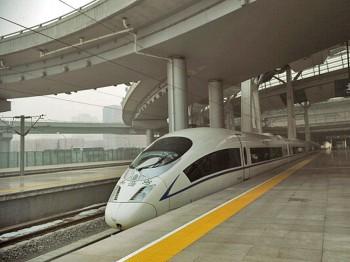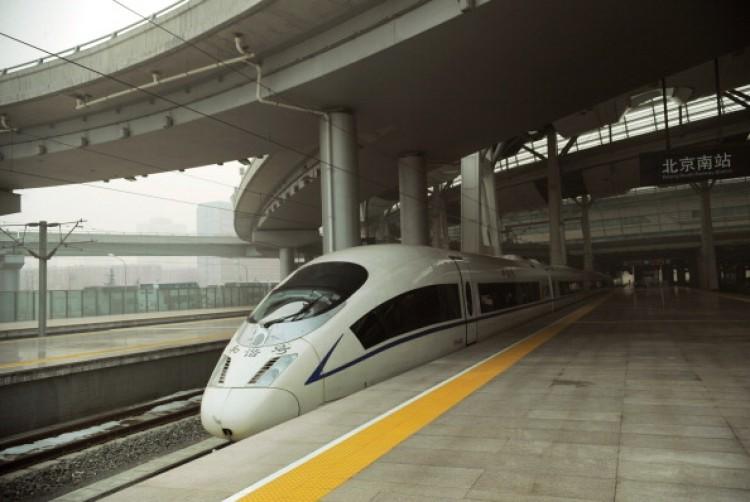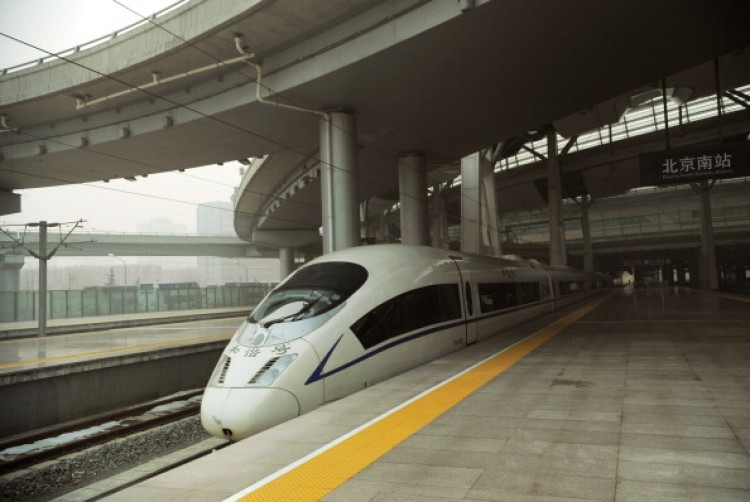China’s high-speed rail (HSR) system is getting more bad press. A former deputy chief engineer alleges that breaking world speed records was pursued without regard to safety. Other troubles include sinking rail beds.
Though the manufacturer set the safe operating maximum at 186 mph, former Minister of Railways Liu Zhijun insisted on raising the speed to 217 mph in order to set a world record, according to former deputy chief engineer Zhou Yimin.
Zhou also highlighted some other areas of concern. Some HSR rail beds, such as from Beijing to Tianjin, and from Shijiazhuang to Taiyuan, have sunken several inches—yet the Ministry still has not disclosed this to the public.
The construction of China’s HSR system has been regarded as an economic miracle, and world speed records were set time and time again, even reaching 300 mph.
However, Liu was charged with corruption and sacked earlier this year. Since then, negative news items about China’s HSR have appeared one after another.
The 21st Century Business Herald in Guangzhou quoted Zhou as saying that even the original speed limit, below 230 mph, was set by the Ministry without regarding safety factors.
“The train used on the Beijing-Shanghai HSR is known as ‘Harmony CRH380,’ and previous versions were used by Japan’s bullet train and Germany’s Intercity Express. The contract the Ministry of Railways signed with both Japan’s Kawasaki Heavy Industries and Germany’s Siemens clearly specified that the top speed was 186 mph.”
Taking Risks
During Liu’s tenure in the Ministry, Zhou recalls, he insisted that the project should be approached like the “Great Leap Forward” (when the entire country, including peasants, worked on steel production, and consequently 30 million starved to death). Liu was obsessed with the idea that China’s HSR had to be “number one in the world.” As a result, the HSR was declared fully operational without sufficient test runs.
Zhou also mentioned examples of defects the Ministry kept quiet about. A cover of the electrical system along the Wuhan-Guangzhou line accidentally separated, and parts of the rail bed on the Shijiazhuang-Taiyuan line have sunken up to 15 inches a mere two years after completion. The Beijing-Tianjin line has the same problem, Zhou said.
Higher energy consumption with increased speed is a problem as well. “When the speed increases by 27 percent, the energy consumption can increase by 56 percent,” Zhou said.
Engineers Dare Not Ride
An engineer who worked on the construction of the rail told the Shaanxi bureau of People’s Daily last year that he would never ride the HSR in his lifetime, and has also urged his friends and relatives not to ride them.
The paper’s editor, Du Jun, commented, “Since those who participated in the construction of the HSR dare not ride them, there must be serious problems.”
Du said China’s HSR has been developed very fast, but shortening time and quickening pace can produce dangerous results. He called the HSR a typical “trilateral project,” meaning construction was done concurrently with surveying and planning.
Embezzlement
Rumors have it that Liu embezzled nearly 800 million yuan (US$123 million) from the rail project.
Another former chief engineer of the Ministry of Railways, Zhang Shuguang, who used to be praised as the founder of China’s high-speed rail technology, was also detained by the Central Disciplinary Inspection Commission. He is alleged to have deposited large sums of money overseas.
Official Beijing media reported in May that the Beijing-Shanghai line begins operation at the end of June, after undergoing one month of testing. Unnamed experts were said to have signed off on the rail’s safety, saying the line operates according to world-class standards. In January the train ran at a record speed of 302 mph.






